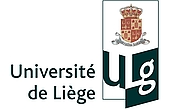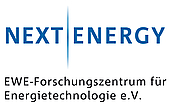Project Consortium
Element Energy is a growing practice providing strategic advice and engineering consultancy in the low carbon energy sector. Element Energy has been involved in hydrogen technology since its formation in 2003 and before that the directors at Element have been involved in hydrogen engineering projects since 1999.
Tasks in this project:
Element is the coordinator for the project. They also lead work package 8 on expanding demonstration activities beyond the scope of the project. In particular, Element will undertake an industrial dissemination task, whereby it will establish working groups bringing together vehicle OEMs and infrastructure providers, to discuss the possibility of them using the substantial infrastructure networks deployed through the SWARM project.This activity will help to ensure a successful legacy for SWARM and will help convince both European and non-European OEMs to make full use of these new elements of the European hydrogen refuelling network. All vehicle types will be targeted, from small hybridized vehicles such as those deployed in this project, to larger vehicles and even buses.
PLANET provides engineering and consulting services for the efficient supply and use of energy and water, for employing hydrogen as an energy carrier, and for fuel cell technology. One of the key competences is to turn innovative research and development results into everyday operation.The company strives to develop and implement systems that use renewable energy sources and minimise the depletion of natural resources.
PLANET performs consulting, planning and project managing services for hydrogen and fuel cell projects, including fuel cells for vehicle propulsion, vehicle hydrogen supply (onboard and filling stations), and hydrogen energy storage. Services also include feasibility and profitability analyses, life cycle analysis and market studies.
Tasks in the project:
PLANET will help coordinating the project and contribute to the planning and employment processes, the acquisition of permits and certification, and the performance data evaluation. Further contributions are planned to the research work at the universities.
Riversimple's Purpose is "To systematically pursue the elimination of the environmental impact of personal transport."
Hugo Spowers, a former motorsport engineer, studied the commercial feasibility of bringing hydrogen cars to market during an MBA at Cranfield. He concluded that a step change in technology was both essential and possible and, furthermore, that the principal barriers were not technical but to do with people, politics and business inertia. The incumbent industry was shaped by the 20th century and is not well suited to addressing the constraints of the 21st; redesigning both the fundamental architecture of cars and the business model for providing mobility, rather than adapting legacy technology and practices, reduces barriers and risks, both technical and commercial.
Tasks in the project: Manufacture and delivery of 20 hydrogen fuel cell electric vehicles to be trialled by customers in an urban pilot in the city of Leicester and a rural pilot in the counties of Herefordshire and Shropshire.
Air Liquide is the world leader in gases for industry, health and the environment, and is present in 80 countries with 50,000 employees. Air Liquide supplies its customers in extremely diverse industries such as steel industry, food and beverage, electronics or pharmaceuticals. In order to match the needs of all of these clients, the Group is organised in different World Business Lines. For over 100 years, Air Liquide has made innovation central to its strategy.
In the hydrogen-energy sector, Air Liquide provides a technological offer (fuel cells, high pressure storage, filling stations, decentralized and carbon free hydrogen production) and implements a dedicated hydrogen supply chain wherever needed while growing a viable business activity to prepare the emergence of hydrogen in the mass transportation market.
More specifically, Air Liquide Advanced Technologies activities cover:
- Innovation and product development, including fuelling stations
- Hydrogen storage and distribution systems
- Hydrogen energy solutions marketing and sales
- Hydrogen systems supply chain with the New Business unit
- Customer service and maintenance
Tasks in the project:
Air Liquide will design and commission Hydrogen refuelling stations capable of delivering 50 to 200kg/day. These are to be utilised within the SWARM project. Air Liquide will assign one project engineer full time to lead and support this project, to support the lead project engineer, process design engineers, compression experts and a team of mechanical and electrical engineers and technicians will be sourced from Jacques Drevard’s Business Unit. Complete risk analysis will be conducted by Air Liquide risk management team along with other Partners in the project.
The Centre for Hydrogen and Fuel Cell Research is part of the School of Chemical Engineering within the College of Engineering & Physical Sciences at The University of Birmingham. The Centre is nationally and internationally recognised for its dynamism and expertise in Fuel Cell Technologies. It is also part of the £6.8million Advantage West Midlands Science City initiative, £1billion UK-ETI Midlands Consortium and has recently been awarded £5.5million (RCUK) for the creation and running of a Doctoral Training Centre in Hydrogen, Fuel Cells and their Applications, the first of its kind in the UK. The aim is to train 50 doctoral students (with intake of around 10 a year starting from 2009) to meet increasing demand from industry and society for skilled scientists and engineers in “Hydrogen, Fuel Cells and their applications” research field (www.fuelcells.bham.ac.uk) with graduates with the skills to take on the global challenges now faced in the field.
The Centre focuses on Research and Development, applications and demonstrations of Hydrogen and Fuel Cell systems; and has numerous publications & patents in Fuel Cell Technologies. The Centre also has state of the art facilities and is home to England’s first hydrogen filling station (launched 14/04/08) and hydrogen powered house (Launched 10/10/08) a hydrogen fuel cell Combined Heat and Power (CHP) and five hydrogen fuel cell vehicles. The CHFCR also focuses on the implementation of a Hydrogen and Fuel Cell Supply Chain in the West Midlands and the UK with currently 60 SMEs developing and manufacturing HFC components.
Tasks in the project:
The University of Birmingham will be completing several tasks within this proposal with partners. It is envisaged that the centre will carry out 10 research and development projects across the whole field of the demonstration. Typical areas of study will be: Battery technology, Vehicle integration, Vehicle design, Power train, Hydrogen generation, Fuel Cell and Social Behaviour.
Coventry University has one of the largest engineering faculties in the UK and has an international reputation in the areas of automotive engineering and design. As a consequence, Coventry University has established strong links with a significant number of automotive OEMs and Tier 1 suppliers; furthermore Coventry is the lead academic institution for the TSB / AWM-funded Niche Vehicle Network, of which Microcab is a member/beneficiary, and works with more than 7500 SMEs per annum, across a broad range of sectors.
Since January 2010, Coventry University has been a consortium partner in the Coventry And Birmingham Low Emission Demonstrator (CABLED) Programme, funded by TSB at £17m, making it the largest project within the national Ultra Low Carbon Vehicles Demonstrator programme. Coventry’s role is the delivery and operation of the 8 Microcab HFC vehicles and user selection/ analysis.
Tasks in the project:
Coventry university will supply engineering design, development and analysis for upgrading the existing Microcab fleet for new power train and supervisory control & the design for new Microcab vehicles, based on the existing rolling chassis. Coventry university will also optimise and study the power train.
The Université Libre de Bruxelles (ULB) is the French speaking university of Brussels. It is a complete university offering the full scope of educational degrees. One of its faculties is the Faculty of Applied Sciences where a complete programme of three years of Bachelor and two years of Master is offered to the students, among which a large number of Erasmus and Time students. In the Master years, a specialisation in Aeronautics and another one in Transport Technology are available. This student programme is even now organised in co-operation with the Flemish University of Brussels (VUB), the KU Leuven and the Royal Military Academy of Belgium.
The department of Aero-Thermo-Mechanics (ATM) is one of the members of the Faculty of Applied Sciences and is the largest contributor to the specialisation in aeronautics. The department of Bio-, Electro- And Mechanical Systems (BEAMS) is another member of the Faculty of Applied Sciences and is the largest contributor to the specialisation in Transport Technology. With ten Professors, about 50 scientists, PhD students and post-docs and, in addition, their own technical staff, the ATM and BEAMS departments have also very close links with the VUB and the von Karman Institute in Fluid Dynamics for educational and research purposes.
Tasks in the project:
Demonstration: the vehicles at ULB will be used in a large city with typically huge traffic problems. Research: The development of the requested technique, sensors, DAQ and analysis method to study the effect of the urban atmospheric pollution on the PEMFCs and monitor the degradation of their performance on board the electric cars in operations in an urban environment like Brussels where the atmospheric pollution in the streets can become high on certain hours / days.
The development of the requested technique, sensors, DAQ and analysis method to monitor the adequate level of humidification of the membrane of the PEMFC on board the electric cars in operations in an urban environment like Brussels with users on working days only.
These two tasks imply of course also the monitoring of the performance of the PEMFC and of the car in operations. Some activities on the hydrogen tanks and especially the testing of lightweight tanks in such an environment with a high level of vibrations could also be added during the project.
The only complete public university in the Belgian French-speaking community, the University of Liège prides itself on its pluralistic vision and on its pursuit of excellence in teaching, research, and innovation. With a student body numbering 18,000 and a staff of 4300, 2800 of whom are teachers or researchers, the University of Liège offers enriching and diversified courses of study (35 bachelor's, 170 master's, and 64 advanced master's programmes), is committed to the development of student-centered learning, is intensely involved in international research programmes (especially the European Union's FP6 and P7 projects) and is in contact with more than 600 institutions throughout the world (250 in Europe).
The University of Liège is fully integrated into the greater European education (Bologna) and research (Lisbon) sphere, and more globally, into the main international scientific networks. Attuned to society's needs, the University of Liège also plays an important role in Wallonia as creator of new economic high value-added economic activities and as coordinator of technological centers bringing together the public and private sectors. Located in a city near the meeting point of Germanic and Latin cultures (the Euregio Meuse-Rhine and the Greater Area), the University of Liège is the culmination of a long intellectual and educational tradition. Easily accessible by road, air or train, the university has much to offer prospective students and researchers from across Europe and beyond who wish to partake of its ongoing commitment to quality research and teaching, already internationally recognized.
Two research units of the University of Liège will participate to the project: the Department of Applied Chemistry and the LTAS-Automotive Engineering, both part of the Faculty of Applied Sciences.
Tasks in the project:
The ULG will contribute to the development of innovative techniques to monitor on-line the status and efficiency of the fuel cell powertrains during daily operations, under real operating conditions (i.e. in a Microcar vehicle). The analysis of the cell performance will be done with regard to the conditions of use (weather, type of journey, etc.). The performance and ageing of the fuel cell will be compared to those obtained on fuel cells operated on standardized fuel cell test benches. The research will so develop realistic equivalent driving cycles to render the real stress and loadings of the fuel cell powertrains and their components in order to establish a validated design and testing procedure.
The ULG will contribute to the dissemination of the usage and knowledge of fuel cell powered vehicles in the Certificate in Sustainable Automotive Technologies that is co-organized by ULG and FOREM in the Campus Automobile of Spa Francorchamps. This one-year post master training aims at providing education in top technologies in clean propulsion systems to a dozen of Belgian and International students. A module of the certificated is devoted to fuel-cell powered vehicles.
The Jade University of Applied Sciences has three sites, one in Wilhelmshaven on the North Sea coast, one in Oldenburg, and one on the river Weser in Elsfleth. The main subjects covered at the university are nautics, economics, architecture and engineering. In the past, the university has taken a keen interest in energy topics and regularly organises a small regional energy conference.
Wilhelmshaven is the site of a large chlorine producing chemical plant and the use of the excess hydrogen generated has been topic of several studies and concepts. Participating in this project the university can finally integrate this interesting hydrogen source into a vehicle demonstration activity.
Tasks in the project:
Employing SWARM vehicles for use by the university and travelling between sites. Carrying out research on the electromagnetic proofing of battery – fuel cell hybrid drive trains.
TÜV Süd AG has two main activities, the TÜV Süd Industrie Service GmbH that certifies gas installations, amongst others hydrogen refuelling stations, and TÜV Süd Automotive GmbH who certifies road vehicles.
As one of the main players in technical certification in Germany and Europe, the TÜV (Technischer Überwachungsverein) has a major role in technology certification throughout Europe. Although the certification process itself may not be performed within the project for reasons of impartiality, the know-how of TÜV will be used to plan and conduct the certification processes, define the standards to adhere to and the tests to be performed and the format of the documentation. This effort is aimed at reducing the overall certification effort by standardising the processes and at the same time warranting for maximum safety in the everyday operations of vehicles and HRS.
Tasks in the project:
Aid with planning and designing the certification processes for vehicles and HRS.
Namur is the capital city of the region of Wallonia in the SouthEast of Belgium. The region is mainly French speaking (with some German in the Eastern cantons around Eupen). The university of Liège is involved in a technology parc that has been established in Namur. In and around this parc vehicles will be operated for use by the town magistrate, the technology parc companies and other users in the environs.
Tasks in the project:
Employment of SWARM vehicles and site of a hydrogen refuelling station.
Microcab, a spin-out from the SWARM partner Coventry University, aims to design and develop a vehicle for urban transport using low carbon, hydrogen fuel cell technology. The design concept is a vehicle with good environmental characteristics. It incorporates a powertrain architecture which is modular and fully optimised systems and components. Technology and component choices have been dominated by considerations of availability, practicality, robustness, affordability, and avoidance of the risks associated with emerging exotic technologies. The original inspiration for this came about as a response to urban congestion problems, particularly in large cities. The intention has been to design and prototype vehicles employing lightweight structures powered by hydrogen fuel cells.
Tasks in this project:
Microcab will provide a total of 10 vehicles to the West Midlands.
Partners formerly in the project but currently not active:
Founded in May 2009, the company can nevertheless look back at activities dating back to as early as 2000. The company resides in the NorthWest German town of Varel where the car manufacturer HANSA built large motor vehicles in the 1920’s (subsequently bought up by Lloyd, Bremen, and moved to their production site).
The goal of the company activities is to construct and build a lightweight, versatile small electric vehicle that can be easily adapted to various user needs. The vehicle concept has been patented. As a first step towards the proprietary design, the company converts the French Ligier and MicroCar lightweight passenger vehicles to electric and fuel cell drive. The battery electric version ‘Elano’ is the basis for the integration of a fuel cell range extender, turning the vehicle into a battery-fuel cell hybrid. The ‘Elano’ has a full road certification for registration throughout Europe. Full certification for the fuel cell version is targeted for the end of 2012. A production of 200 vehicles per year (battery or FC hybrid) is the short-term target.
Tasks in the project: H2O e-mobile GmbH will manufacture a series of 20 fuel cell battery hybrids (‘ElanoFC’) for use in the project for demonstration purposes and for university research projects.
The German Research Center for Artificial Intelligence (DFKI GmbH), with sites in Kaiserslautern, Saarbrücken, Bremen (with an associated branch in Osnabrück) and a project office in Berlin, is the leading German research institute in the field of innovative software technology.
In the international scientific community, DFKI ranks among the most recognized "Centers of Excellence" and currently is the biggest research center worldwide in the area of Artificial Intelligence and its application in terms of number of employees and the volume of external funds. The Robotics Innovation Center (RIC) is led by Prof. Dr. Frank Kirchner and belongs to the Bremen site of DFKI. The Robotics Innovation Center designs and realizes intelligent robots for a variety of application areas, such as underwater, space, SAR (Search and Rescue) and security robotics, logistics, production, and consumer (LPC), cognitive robotics, e-mobility, and rehabilitation robotics, focusing on a rapid transfer of results of basic research into real-world applications.
Tasks in the project:
The Robotics Research Group will be responsible for the conceptualisation and design of a data storage facility for the empirical data gathered by the partners during the planned fleet trials. This includes the collection of data from vehicles in actual driving operations via data logger and GSM connection, and the data server and storage so that the OEM project partners and data evaluating partners (some university groups) have access to raw data and pre-processed data.
At the University of Bremen more than 1,600 scholars and scientists are working on cutting edge research in twelve different faculties, six cross-faculty high-profile areas, and numerous smaller research profile networks. The Department of Mathematics and Computer Science, featuring several hundred students and staff, is nationally and internationally renowned for high-quality research. Robotics has been an integral part of the department’s research agenda for many years.
CRIE – The Centre for Regional and Innovation Economics at the Uni Bremen offers scientific research and consulting at the interface between basic research and practical applications. Its main areas of research are at the interface between three core subjects: 1) innovation systems and knowledge transfer, 2) cluster dynamics and 3) networks.
CRIE especially accumulated expertise in electromobility, offshore wind energy, biotechnology, B2C services and the machine tool industry. CRIE has extensive experience in coordinating interdisciplinary project teams on the regional, national, and European level. CRIE has co-ordinated and participated in several relevant research and consultancy projects on behalf of the European Union and national bodies like the Federal Ministry of Transport, Building and Urban Development (BMVBS) or the Federal Ministry of Science and Education (BMBF). There are also respectable numbers of regional clients such as Bremen Economic Development (WFB).
In summary, the core competencies of CRIE are:
- Analysis of systemic innovation processes in regional and technological innovation systems with a special focus on the institutions governing these processes
- Focus on regional and cluster dynamics including the emergence, growth, sustaining and lock-in / decline phase
- A methodical spectrum including open and structured interviews, questionnaire-based surveys as well as statistical, econometric and social network analyses
- The organisation and moderation as well as the academic support of workshops, study groups and round tables
- Comprehensive data base on patents and subsidies for all German regions
Tasks in the project:
CRIE will conduct a socio-economic study of the vehicles and their competitiveness against traditional propulsion technologies.
The EWE Research Centre for Energy Technology NEXT ENERGY is an independent, application-oriented and interdisciplinary research institution which develops solutions for the energy supply of the future. The work includes extensive research ranging from materials research to systems development in collaboration with industry partners.
The research activities of the institute are focused on three technological areas: photovoltaics, fuel cells and energy storage. NEXT ENERGY was founded in 2007 under the umbrella of the non-profit association EWE-Forschungszentrum für Energietechnologie e.V.. Members of the association include the German utility cooperation EWE AG, which is the primary sponsor, as well as the Carl von Ossietzky University of Oldenburg and the state of Lower Saxony.
The institute is located on the natural sciences campus of the University Oldenburg in Germany and employs currently 78 people with a growing trend. In the research area of Energy Storage with currently 21 staff members the institute develops electric storage systems for mobile and stationary applications with a focus on Lithium-ion and redox flow batteries. The research activities in this field comprise network integration and operational management, packaging and battery management, battery design and development of components as well as simulation.
All these activities support the process of electrification of the transport sector in Europe and facilitate the use of batteries as energy storage to balance the fluctuations of renewable energy in the electricity grid. In particular the integration of an electric car's traction battery into a bidirectional energy supply process between vehicle and the electricity grid (vehicle to grid concept = V2G) lies in the centre of the division`s research objectives. The division has already demonstrated its high competence in monitoring of battery traction systems and its optimisation in the GridSurfer Project which was funded by the German Federal Ministry of Economics and Technology (BMWi).The project is focused on the integration of battery vehicles into the existing energy and transport networks.
Tasks in the project:
Analytic characterisation and simulation of selected Li-ion batteries before, during and at the end of fleet operation as basis for PHEV optimisation.













